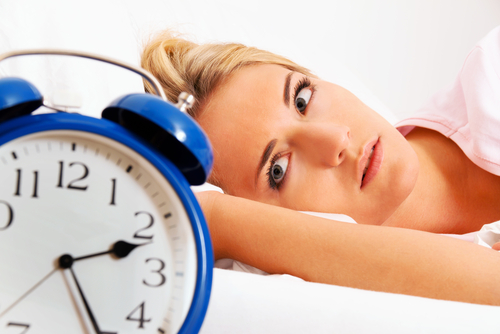Insomnia can have a severe impact on your health and well-being, so why do people view it so lightly? There seems to be a certain lack of empathy towards insomniacs, when someone mentions they have trouble sleeping, the usual response is;
“that’s interesting because I fall asleep as soon as I hit the pillow”
What a ridiculous thing to say! When you notice a person is blind, do you say “that’s interesting because I’ve got twenty twenty vision”? Of course you don’t, and this level of insensitivity helps to hide the ordeal that insomniacs have to endure.
The most famous case of insomnia has to be Edward Norton’s character in Fight Club, whose lack of sleep causes his body to be possessed by his subliminal alter ego. While this is somewhat unlikely and has ruined the ending for you, not sleeping does have some serious, real world consequences.
- Accidents at work.
- Heart disease.
- Serious mental illness.
Although many of us can get away with a bit less, most of us need eight hours of sleep per night. If you are still wide awake until the early hours, there are a few natural ways to help.
Keep Out of the Bedroom
We use our bedrooms for a whole manner of sins, when it should be used almost exclusively for sleep. Spending hours in your bedroom eating, exercising and watching TV has a terrible effect on your ability to switch off, as you stop associating this room with sleep.
When you walk into the gym, how do you feel? As you have been conditioned to associate this room with exercise, you should feel motivated an energetic. It’s the same reason why we feel hungry when we walk through the kitchen, instinctively opening the fridge for no reason, and the same reason why you should do nothing in your bedroom but sleep.
Keep a Routine
Try not to alter your bedtime by more than an hour each night. This may be easier said than done, but will be a massive help. If you start going to bed at twelve o clock every night, you will soon find yourself starting to fall asleep at half eleven.
Do the same thing before you go to bed every night, this can be anything from watching the news to having a shower, but reading to children works best. Just like your bedroom, your brain will also associate these tasks with sleep, and start to switch off when they are done.
The changing of the seasons will make keeping this routine difficult, nobody likes being woken up in the dark by their alarm. A dawn simulator, such as the Lumie Bodyclock, recreates a sunrise to help wake you up naturally.
Keep Nourishing
What you eat and drink also affects your sleep. You probably don’t need telling that you should not drink coffee after sundown. For reasons known only to themselves though, many people finish their evening meal with a double espresso, why? Swapping this coffee for a nightcap may seem more sensible, but this will just cause you to wake up around two o clock.
Eat complex carbohydrates such as pasta, brown rice and bread late in the evening. Again this may seem counter intuitive as they slowly release energy, but they also cause the body to release melatonin. This is the hormone that regulates your body clock by inducing sleep.
Surprisingly, a little sugar before bed also works. It has been known to act as a natural sedative, so maybe hotels putting mints on the pillow isn’t such a daft idea after all.
Joe is a blogger and fitness enthusiast who writes about sport, nutrition and healthy living for Peak Nutrition.
Originally posted 2013-06-10 09:49:05.


There are some great tips here. Insomnia is a real pain, so anything that helps is always welcome advice!